Week 34 Preparedness Challenge
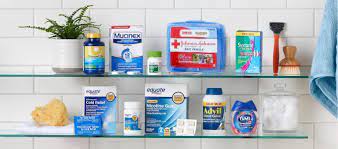
This week the preparedness challenge is quick and simple, but it is an important part of being prepared. It is simply to update your over-the-counter medications.
Two Important Tasks for Updating Your OTC Medications
TASK NUMBER 1
Make sure that you have the various over-the-counter medications that your family needs and purchase any that might by lacking.
TASK NUMBER 2
Check the expiration dates on your medications and replace any that are beyond their date.
Make sure you have the over-the-counter medications that your family needs. Toss any expired medications.
Organizing the Task of Updating OTC Medications

Step 1 List all the OTC drugs your family regularly uses or might use in a crisis.
Step 2 Organize the medications in categories.
Step 3 To save money, consider generic forms as well as national brands.
Step 4 Store containers or tubes of frequently used medications in several places.
Include these categories: pain relievers and anti-inflammatories, cold medicines, antihistamines, antacids and upset stomach medicines, antiseptics, antidiarrheal medications, and ointments. Many common medications are sold as familiar national brands or in generic form, and either are acceptable.
Store Enough OTC Medications for a Year
Generally, store enough of each type of OTC medication for a year. Determine how many tablets or capsules your family uses in a month and multiply that number by twelve to determine how much to store for a year. Increase that amount, especially for pain treatments if you anticipate the likelihood for trauma injuries.
What Categories of OTC Medications Should You Store?
Store OTC medications in each category. This is not an all-inclusive list but a good start.
PAIN RELIEVERS AND ANTI-INFLAMMATORY NASID
Among the most important medications to include in your medicine chest are pain relievers. This includes acetaminophen (Tylenol), non-steroidal anti-inflammatory drugs (NSAIDs) such as ibuprofen (Advil) and naproxen (Aleve), and aspirin (salicylic acid). All three types of pain relievers will be useful in a prolonged crisis.
Acetaminophen is used to reduce fever and for minor aches and pains. NSAIDs reduce inflammation and the pain associated with it. Aspirin is another pain-relieving and fever-reducing alternative, but has side effects that make it less popular.
COLD MEDICINES
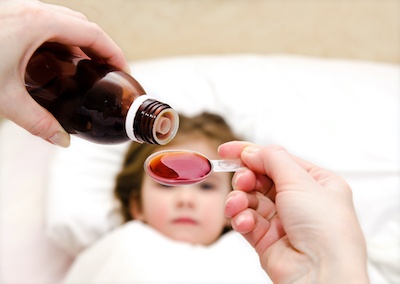
Store your favorite medications for relieving cold symptoms. Include decongestants for congestion, lozenges to soothe sore throats, and both cough-reducing medicines (dextromethorphan) and expectorant cough medicines that loosen mucus in the bronchi. Products like Airborne and Zicam can help prevent and lesson the duration of colds.
ANTIHISTAMINES
Store antihistamines such as diphenhydramine (Benadryl) and loratadine (Claritin) for reducing allergy symptoms and to treat the symptoms of sneezing, runny nose, and watery eyes.
ANTACIDS AND UPSET STOMACH
If needed by members of your family, include acid-neutralizing antacids like Maalox, and Mylanta and acid blockers like Omeprazole and Zantac (ranitidine). Store dimenhydrinate (Dramamine) and Emetrol to help control nausea and vomiting.
ANTISEPTICS
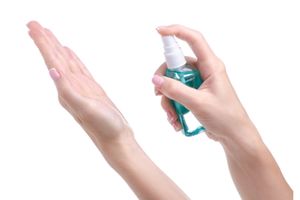
Antiseptics include rubbing alcohol, hydrogen peroxide, and hand sanitizer. You may want to store a wound irrigation bottle and distilled water and salt for making a saline solution to clean wounds. A saline solution is made by dissolving 2 teaspoons of table salt in one quart of distilled or boiled water.
ANTIDIARRHEAL MEDICATIONS
This type of medication may be used rarely, but in some emergencies it can be a life saver. To help relieve diarrhea symptoms store the following OTC medications:
- Bismuth subsalicylate (Kaopectate, Pepto-Bismol)
- Loperamide (Imodium). The maximum use for OTC use is 8 mg per day, for prescription use is 16 mg per day.
- Rehydration electrolytes are used to replenish electrolytes lost from illness (fever or vomiting and diarrhea), strenuous exercise, and hot weather. Pedialyte and Drip Drop ORS are two brands that offer powders to mix with water.
OINTMENTS
Store the following skin ointments and creams:
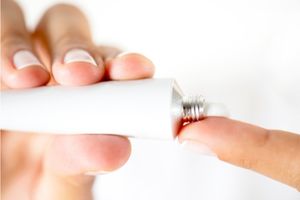
- A & D topical ointment for soothing rashes and dry or cracked skin
- Antibiotic ointment (Neosporin) to treat and prevent infection for minor wounds
- Hydrocortisone cream to reduce itching from insect bites, poison oak and ivy, eczema, dermatitis, allergies, rashes, outer female genital and anal irritation.
- Aloe gel for soothing sunburns and minor skin irritations
- Anti-fungal cream (Tinactin Cream) for fungal infections
Learn More
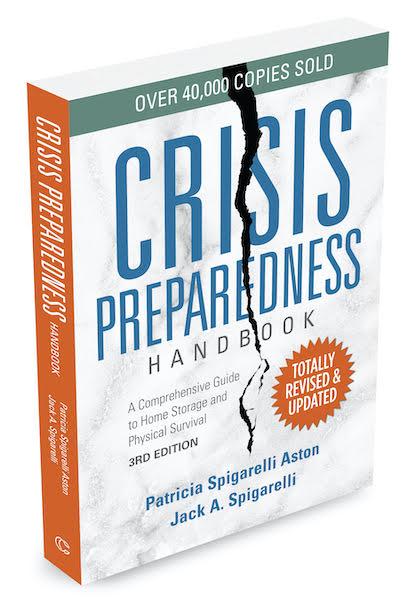
Learn more about preparing for a crisis or emergency, including how to be prepared to handle medical situations in an emergency, in my book Crisis Preparedness Handbook. Learn more about what medications you need for an emergency and what medical supplies and tools to store. If you don’t already have a copy, you can find it on my website or on Amazon. Learn more about other areas of preparedness in on my website CrisisPreparedness.com.
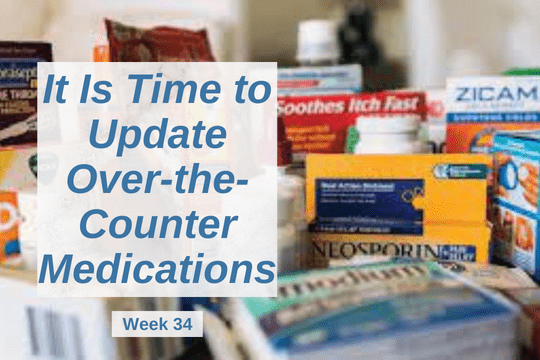


1 thought on “Make Sure to Update Those Important Over-the-Counter Medications”
I have stocked up on peroxide, colloidal silver, MMS, DMSO, parasite medications and I have several different types of medicinal herbs in the garden. I recently became interested in essential oils with my favorite being Oil of the good Samaritan (thieves oil).